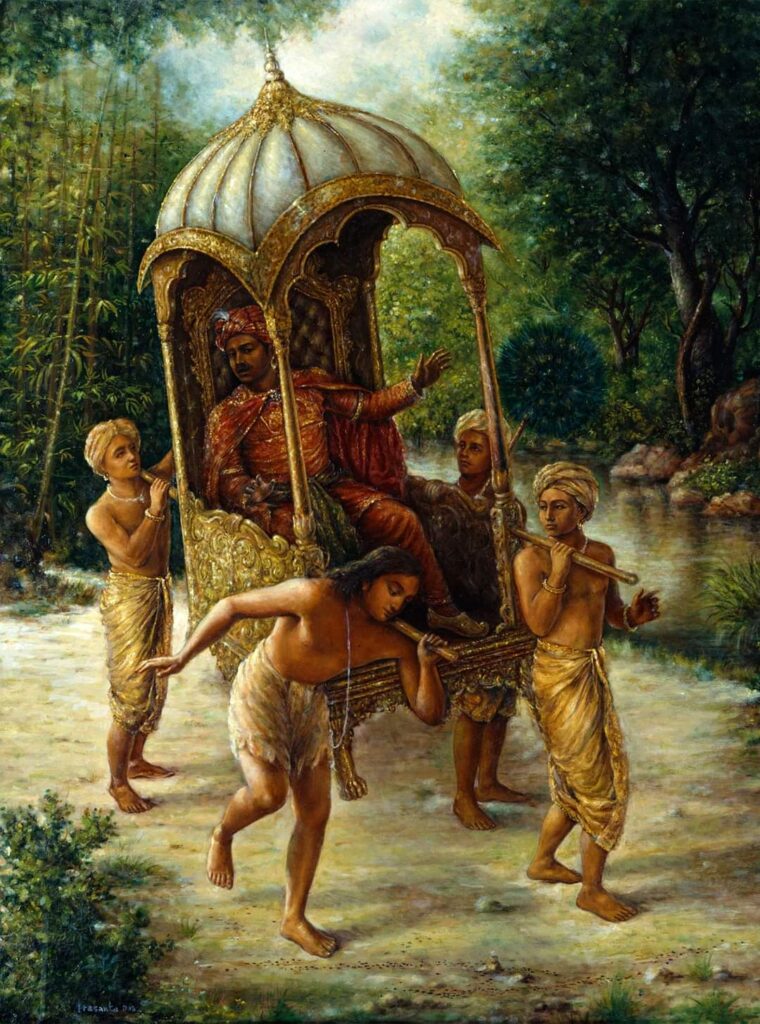One of the problems we face in our movement is the shortage of young, energetic, and talented people who can do things and use their talents to spread Krsna Consciousness. One reason for that is of course that it’s not so easy to find talented people willing to dedicate their lives to Krsna, a problem that was also identified by Srila Prabhupada at his time. Another reason is that for decades we have been facing a “brain drain” in our movement, with young and talented devotees going to other groups, or simply starting their own projects outside.
There are different possible causes for it. One reason is simply that many prefer to act independently. This is a natural human characteristic, and usually, the more materially intelligent a person is, the more he or she will be inclined to it. This can however be counterbalanced by a healthy relationship with the spiritual master. If a disciple has a relationship of trust and gratitude to the spiritual master, he or she may be able to continue acting under him despite having other possibilities, just like many talented disciples of Srila Prabhupada did and are still doing up to the end. This requires, however, a sufficient number of qualified spiritual masters, which is also a limiting factor since the number of pure devotees available to take this role is always limited.
Another point is that having a spiritual institution implies having rules and fences, which is always a little discouraging to creative and intelligent people. Such rules and fences can’t be completely eliminated, but it helps when they are kept down to the essentials. Over time, new laws and rules tend to be established, and they pile up on top of the previous ones, creating a maze that gradually becomes oppressive. Such an excessive load of rules can create stagnation. It’s important to at times sit down and discuss what the priorities are and what is really important or not.
A third problem however is that often talented devotees are just put down without good reason, just because the persons in charge are not interested enough to take a look into it and try to understand the possibilities. There are many possible legitimate reasons for it (managers may be just too busy, for example), but frequently it comes down to a negative trait that can be observed in many other types of organizations, which is excessive bureaucratization. When too many managerial layers are added, it becomes increasingly difficult to do anything. Over time, creative people tend to leave, and we end up just with the people who are happy with the status quo. When this happens, managers may become more concerned about just staying out of trouble, and may thus start seeing any kind of innovation as just another potential source of headache.

There is another cause that may appear sometimes and is even more problematic. Sometimes, as we become older, we may start feeling that we know everything and that others should just shut up and listen to us. When we develop this kind of mentality, we become quite toxic to people around us, especially to newcomers. Needless to say, this type of mentality is not very correct, since there are always other people who know more than us. Lord Rama Himself gave the example of how a good leader should act, by always asking for counsel from his close associates before making decisions and engaging each of them according to their natural talents and propensities.
When we lack such characteristics, we may develop a form of “transcendental mediocrity” (quotes because it’s not really transcendental) that can be quite toxic, seeing intelligent subordinates as a threat and rushing to put them down in order to maintain the status quo, becoming attached to stereotyped views and seeing new ideas as a threat our rigid view of the world, or just being too lazy to consider different points of view.
Such mediocrity may manifest in the form of a mixture of entitlement, arrogance, and incompetence. We can find examples of this “transcendental mediocrity” in other spiritual institutions, such as many Christian churches, for example, where members are frowned upon for asking too many questions, which usually leads to a similar brain drain. However, it becomes tragic when the same is found inside our own movement since we are supposed to be a transcendental society. This type of spiritual mediocrity can completely destroy the spiritual mood and convert the practice of Krsna Consciousness into a process for blind followers. That’s something we need to somehow learn to avoid.
